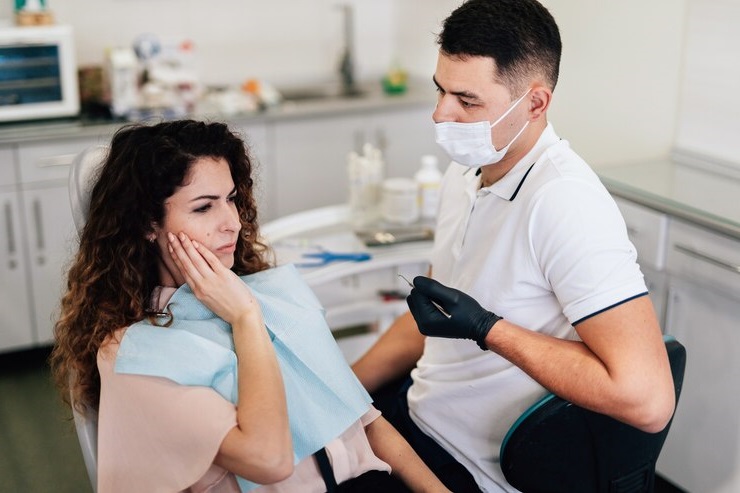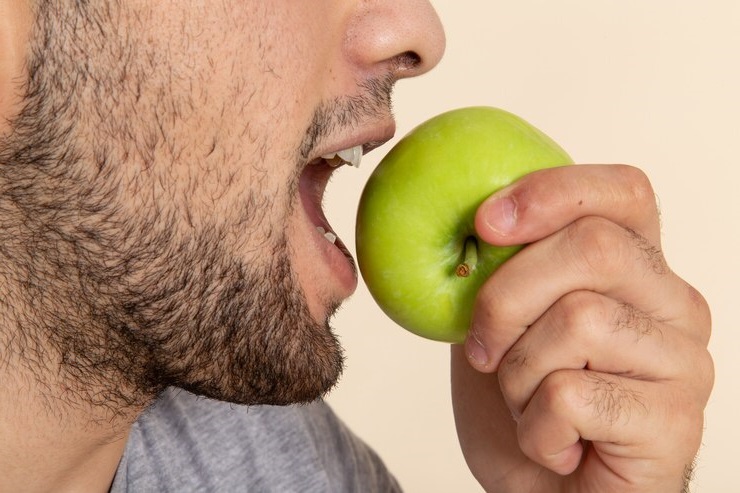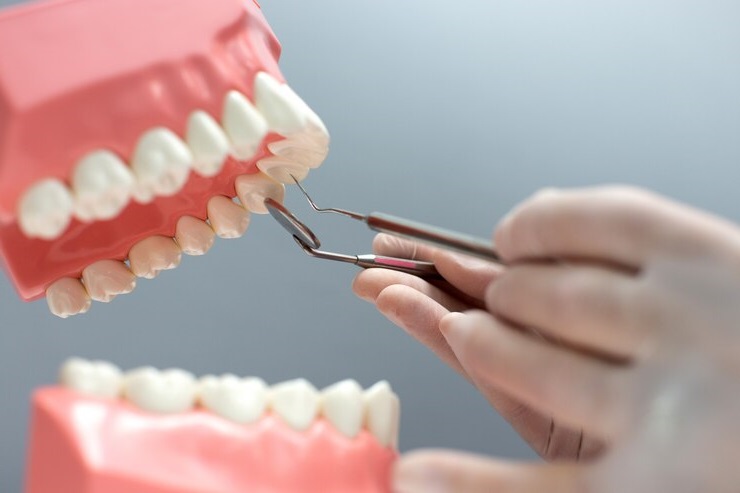
Have you ever wondered how to use dental probiotics? With the growing interest in probiotics for overall health, many people are now exploring their benefits for oral health. Dental probiotics are designed to improve the balance of bacteria in your mouth, promoting healthier gums and teeth. Understanding how to use dental probiotics effectively can help you maximize their benefits and maintain a healthier smile.
What Are Dental Probiotics?
Dental probiotics are live microorganisms that provide health benefits specifically for your mouth. These beneficial bacteria can help improve oral hygiene, reduce harmful bacteria, and promote overall dental health. Unlike traditional probiotics that are focused on gut health, dental probiotics target the unique environment of the mouth.
The Importance of a Balanced Oral Microbiome
The oral microbiome is the community of microorganisms living in your mouth. A healthy balance of these microorganisms is essential for maintaining good oral health. When harmful bacteria outnumber beneficial bacteria, it can lead to issues like cavities, gum disease, and bad breath. Knowing how to use dental probiotics can help restore and maintain this balance, promoting better oral health.
How Do Dental Probiotics Work?
Dental probiotics work by introducing beneficial bacteria into your oral cavity. These good bacteria compete with harmful bacteria for space and resources, reducing the population of harmful bacteria that cause oral health problems. But to get the most out of them, you need to know how to use dental probiotics properly.
Mechanisms of Action
Dental probiotics can help in several ways:
- Competing with Harmful Bacteria: They compete for adhesion sites on teeth and gums, preventing harmful bacteria from colonizing.
- Producing Antimicrobial Substances: Some probiotics produce substances that inhibit the growth of harmful bacteria.
- Modulating the Immune Response: Probiotics can enhance the body’s immune response, helping to fight off infections.
Benefits of Using Dental Probiotics
Incorporating dental probiotics into your oral care routine can offer several benefits. Understanding these benefits can help you appreciate the value of knowing how to use dental probiotics effectively.
Preventing Cavities
One of the primary benefits of dental probiotics is their ability to help prevent cavities. By reducing the levels of harmful bacteria in the mouth, probiotics can decrease the risk of tooth decay and promote healthier teeth.
How Cavities Form
Cavities form when harmful bacteria in the mouth produce acids that erode tooth enamel. By reducing the number of these bacteria, dental probiotics can help lower the risk of cavities. Understanding how to use dental probiotics can make a big difference in your dental health.
Streptococcus mutans is a type of bacteria that plays a significant role in the formation of cavities. It metabolizes sugars from the food we eat, producing acids that erode the enamel. By incorporating dental probiotics that target Streptococcus mutans, you can significantly reduce the risk of developing cavities.
Improving Gum Health
Gum disease, also known as periodontal disease, can lead to serious dental issues if left untreated. Dental probiotics can help improve gum health by reducing inflammation and the number of harmful bacteria in the mouth.
Signs of Gum Disease
- Red, swollen gums: Early sign of gingivitis.
- Bleeding gums: Often noticed during brushing or flossing.
- Bad breath: Persistent halitosis can indicate gum disease.
- Loose teeth: Advanced gum disease can lead to tooth loss.
Gingivitis is the earliest stage of gum disease, characterized by redness, swelling, and bleeding of the gums. If left untreated, it can progress to periodontitis, a more severe form of gum disease that can result in the destruction of the supporting structures of the teeth, leading to tooth loss. Knowing how to use dental probiotics can help reduce the inflammation and bacterial load in the mouth, thereby improving gum health and preventing the progression of gum disease.
Freshening Breath
Bad breath, or halitosis, is often caused by an overgrowth of harmful bacteria in the mouth. Dental probiotics can help freshen breath by reducing these bacteria and promoting a healthier oral microbiome.
Causes of Bad Breath
Bad breath can be caused by various factors, including poor oral hygiene, dry mouth, and certain foods. By incorporating dental probiotics into your routine, you can help address some of the underlying causes of bad breath and enjoy a fresher mouth.
Poor oral hygiene can lead to the accumulation of food particles and bacteria in the mouth, resulting in bad breath. Dry mouth reduces saliva production, which normally helps cleanse the mouth and neutralize acids produced by bacteria. Certain foods, such as onions and garlic, can also contribute to bad breath. Knowing how to use dental probiotics can help stimulate saliva production, reduce bacterial load, and neutralize odors, providing a comprehensive solution to bad breath.
How to Use Dental Probiotics
To get the most out of dental probiotics, it’s important to use them correctly. Here are some tips on how to incorporate them into your daily oral care routine.
Types of Dental Probiotics
There are various forms of dental probiotics, including lozenges, chewable tablets, and capsules. Understanding the differences between these types can help you determine how to use dental probiotics properly.
Lozenges
Lozenges are designed to dissolve slowly in your mouth, releasing beneficial bacteria directly into your oral cavity. This method allows the probiotics to interact with your teeth and gums, providing targeted benefits. To use dental probiotics in lozenge form, simply let them dissolve completely in your mouth.
Lozenges are ideal for individuals who prefer a slow-release method that allows the probiotics to coat the oral cavity thoroughly. They are convenient to carry and can be used discreetly throughout the day.
Chewable Tablets
Chewable tablets work similarly to lozenges, where you chew and dissolve the tablet in your mouth. This process helps release the probiotics into your saliva, which then spreads them throughout your oral cavity. To use dental probiotics in chewable tablet form, chew the tablet thoroughly and allow it to dissolve in your mouth.
Chewable tablets provide a quick and easy way to deliver probiotics to the mouth. They are particularly suitable for children or individuals who may have difficulty swallowing capsules.
Capsules
Capsules are typically designed to be swallowed, delivering probiotics to your gut. However, some dental probiotic capsules can be opened, and the contents can be sprinkled in your mouth. To use dental probiotics in capsule form, follow the instructions provided by the manufacturer.
Capsules offer a versatile option for individuals who may want to target both gut and oral health. When using capsules for oral health, it’s important to ensure that the probiotics are intended for this purpose and that you follow the recommended dosage.
Combining with Regular Oral Care
Dental probiotics should complement, not replace, your regular oral care routine. Brush your teeth at least twice a day, floss daily, and use mouthwash if recommended. Adding dental probiotics can enhance your oral hygiene.
Effective Brushing Techniques
- Use a Soft-Bristled Toothbrush: Prevents enamel and gum damage.
- Brush for Two Minutes: Ensure thorough cleaning of all surfaces.
- Use Fluoride Toothpaste: Strengthens enamel and prevents cavities.
Brushing and flossing remove plaque and food particles that can contribute to tooth decay and gum disease. By combining these practices with the use of dental probiotics, you can achieve a more thorough cleaning and better overall oral health.
Timing and Frequency
The timing and frequency of using dental probiotics can affect their effectiveness. It’s generally recommended to use them daily for the best results. Here are some guidelines on how to use dental probiotics effectively.
When to Use Dental Probiotics
- After Brushing and Flossing: This helps ensure that your mouth is clean and free of food particles, allowing the probiotics to work more effectively.
- Before Bed: Using probiotics before bed can help maintain a healthy balance of bacteria in your mouth overnight.
- After Meals: Chewing probiotic gum or using lozenges after meals can help neutralize acids and reduce harmful bacteria.
Using dental probiotics at strategic times, such as after brushing, before bed, and after meals, can help maintain a healthy balance of bacteria in the mouth and enhance the benefits of your oral care routine.
Scientific Evidence on Dental Probiotics
While the concept of dental probiotics is relatively new, there is growing scientific evidence supporting their benefits for oral health. Let’s explore some of the key studies and findings on how to use dental probiotics effectively.
Research on Oral Health Benefits
Several studies have shown that dental probiotics can help reduce harmful bacteria in the mouth, improve gum health, and prevent cavities. These findings support the idea that dental probiotics can be an effective addition to oral care routines.
Lactobacillus reuteri
A study found that Lactobacillus reuteri, a common probiotic strain, was effective in reducing levels of harmful bacteria in the mouth. This reduction was associated with improved gum health and a decreased risk of cavities, suggesting that knowing how to use dental probiotics can positively impact oral health.
Lactobacillus reuteri works by adhering to the surfaces of the teeth and gums, competing with harmful bacteria for adhesion sites. It also produces antimicrobial substances that inhibit the growth of harmful bacteria, further protecting against oral health issues.
Streptococcus salivarius
Another study showed that Streptococcus salivarius, a beneficial oral probiotic, helped reduce bad breath and improve overall oral hygiene. The study concluded that using dental probiotics containing this strain could help maintain a healthier oral environment.
Streptococcus salivarius is known for its ability to produce bacteriocins, which are antimicrobial peptides that target harmful bacteria. By incorporating this probiotic strain into your oral care routine, you can help reduce the levels of harmful bacteria and improve overall oral health.
Limitations and Future Research
While existing research is promising, more studies are needed to fully understand the mechanisms by which dental probiotics work and their long-term benefits. Future research may provide additional insights into how to use dental probiotics most effectively.
Future research may focus on identifying the most effective probiotic strains, optimal dosages, and delivery methods for maximizing the benefits of dental probiotics. Understanding these factors can help refine recommendations and improve the effectiveness of dental probiotics in maintaining oral health.
Choosing the Right Dental Probiotic
With so many options available, choosing the right dental probiotic can be overwhelming. Here are some factors to consider when selecting a probiotic to use dental probiotics effectively.
Ingredients
Look for dental probiotics that contain proven beneficial strains like Lactobacillus reuteri and Streptococcus salivarius. These ingredients can help reduce the levels of harmful bacteria in your mouth and improve oral health.
Recommended Strains for Dental Health
- Lactobacillus reuteri: Known for its ability to reduce harmful bacteria and improve gum health.
- Streptococcus salivarius: Helps freshen breath and maintain overall oral hygiene.
- Bifidobacterium: Supports gum health and reduces inflammation.
Choosing the right strains can significantly impact the effectiveness of dental probiotics. Look for products that include these recommended strains to ensure you are getting the most benefit from your dental probiotics.
Product Quality
Choose dental probiotics from reputable brands that prioritize quality and effectiveness. Reading reviews and seeking recommendations can help you find high-quality probiotics.
What to Look For
- Brand Reputation: Choose products from well-known brands with positive reviews.
- Certifications: Look for products that have been tested and certified for their probiotic content and effectiveness.
- Customer Reviews: Reading reviews can provide insights into the effectiveness of the probiotics.
Selecting high-quality products is essential for ensuring that you are getting a probiotic that is both effective and safe. Look for brands with a strong reputation and positive customer feedback to make an informed choice.
Delivery Method
Consider the delivery method that works best for you. Whether you prefer lozenges, chewable tablets, or capsules, choose a form that you find convenient and easy to incorporate into your daily routine.
Types of Delivery Methods
- Lozenges: Slow-dissolving and ideal for coating the oral cavity.
- Chewable Tablets: Quick and easy to use, especially for children.
- Capsules: Versatile and can be used for both oral and gut health.
Choosing the right delivery method can make it easier to incorporate dental probiotics into your routine and ensure that you use them consistently.
Real-Life Experiences with Dental Probiotics
Hearing about real-life experiences can provide valuable insights into the benefits of dental probiotics and how to use dental probiotics effectively. Here are some stories from people who have incorporated dental probiotics into their oral care routines.
John’s Improved Oral Hygiene
John struggled with frequent cavities and bad breath. After his dentist recommended a probiotic supplement containing Lactobacillus reuteri, he noticed significant improvements. “I wasn’t sure how to use dental probiotics, but once I started using lozenges that dissolve in the mouth, my breath got fresher and I had fewer cavities,” he says.
Sarah’s Gum Health Journey
Sarah had issues with gum inflammation and bleeding. Her dentist recommended dental probiotics to help manage her symptoms. “I was confused about how to use dental probiotics, but my dentist explained that chewable tablets work best for me, and I’ve seen a big improvement in my gum health,” she shares.
Emma’s Fresh Breath Solution
Emma dealt with chronic bad breath, which affected her confidence. She started using a dental probiotic mouthwash and noticed a remarkable difference. “My breath is much fresher, and I feel more confident. Understanding how to use dental probiotics made all the difference,” she explains.
Frequently Asked Questions About Dental Probiotics
When it comes to using dental probiotics, people often have many questions. Here are some frequently asked questions and their answers to help you understand how to use dental probiotics effectively.
Are Dental Probiotics Safe for Everyone?
In general, dental probiotics are safe for most people. However, individuals with compromised immune systems or serious health conditions should consult a healthcare professional before using dental probiotics. The best dental probiotic for you will depend on your specific health needs and any underlying conditions.
How Long Does It Take to See Results?
The time it takes to see results from dental probiotics can vary depending on the individual and the specific health concern. Some people may notice improvements within a few days, while others may take several weeks to experience the full benefits. Consistency is key when using dental probiotics.
Can Dental Probiotics Replace Regular Oral Care?
While dental probiotics can provide significant benefits for oral health, they should not replace regular oral care practices like brushing and flossing. Instead, dental probiotics should be used as a complementary measure to enhance your overall oral hygiene routine.
Can Dental Probiotics Help with Other Oral Health Issues?
Yes, dental probiotics can help with various oral health issues, including gum disease, bad breath, and oral infections. By promoting a healthy balance of bacteria in your mouth, dental probiotics can support overall oral health and prevent a range of dental problems.
Should I Take Dental Probiotics with Antibiotics?
Antibiotics can disrupt the balance of good and bad bacteria in your gut and mouth, leading to digestive and oral health issues. Taking dental probiotics alongside antibiotics can help prevent these side effects by restoring the balance of good bacteria. The best dental probiotic for this purpose is often Saccharomyces boulardii, which is resistant to antibiotics.
Conclusion
In conclusion, understanding how to use dental probiotics can help you make informed decisions about your oral health. By incorporating dental probiotics into your daily routine, you can support a healthy balance of bacteria in your mouth, reduce harmful bacteria, and enhance your overall oral hygiene.
While more research is needed to fully understand the mechanisms by which dental probiotics work, the existing evidence suggests that they can play a beneficial role in maintaining oral health. Remember, the best approach to using dental probiotics includes choosing the right product, maintaining good oral hygiene practices, and consulting with a healthcare professional if you have any questions or concerns.





